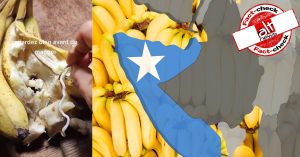The CCRAS (Central Council for Research in Ayurvedic Sciences), an autonomous body of the Ministry of AYUSH, has developed an Ayurvedic formulation, AYUSH-64, that claims to treat malaria without side effects. Although developed 38 years ago, the scientific evidence supporting the efficacy of this drug remains scant. Despite this, the NRDC (National Research Development Corporation) has signed an agreement with Dabur to market this drug in 2014. Recently, the Ministry of AYUSH promoted this drug on their Facebook and Twitter accounts.
A Facebook post of Ministry of AYUSH reads:
“Malaria is one of the most destructive disease conditions known to mankind. Ayurvedic Physicians have been treating malaria since ancient times.
Description concerning aetiopathogenesis, clinical features and line of management are detailed under Vishamajvara in ancient classical literature of Ayurveda. Considering its wide prevalence and developing drug resistance to malaria parasite, CCRAS has developed a polyherbal non-toxic, anti-malarial drug through extensive pharmacological, toxicological and clinical studies. This has been named AYUSH- 64.
(Always consult a physician if symptoms of malaria are noticed)”
The above text roughly suggests that Ayurvedic practitioners have been treating malaria since ancient times, where causes, development of the disease, symptoms as well as treatments are described in detail in the classic Ayurvedic text of Vishamajvara. Since, malaria is widely prevalent and its commonly used treatment drugs are often subjected to resistance, i.e. the disease-causing organism that renders the drug ineffective, CCRAS has developed a drug to counter malaria. This drug is made of several herbs, is non-toxic and is claimed to have been researched extensively for its efficacy, toxicity and through its testing in clinical patients with malaria. This drug is called AYUSH-64.
In this article, we will discuss:
- Malaria infection: Its symptoms, prevention and treatment
- The new anti-malarial drug by CCRAS: AYUSH-64
- The claims by CCRAS on the drug AYUSH-64
- The evidence for efficacy for AYUSH-64
- Misinformation on AYUSH-64 and other anti-malaria treatments on the internet and mainstream media
- Conclusion
Malaria Infection
Malaria continues to be one of India’s leading public health problems. India is among the top 15 countries that accounted for 80% of global malaria deaths in 2016.
Malaria, a life-threatening disease, is caused by a one-celled parasite called “Plasmodium”. The parasites spread to people through the bites of infected female Anopheles mosquitoes. These mosquitoes generally bite at the night time- between dawn and dusk. There are 5 parasite species that cause malaria in humans, and 2 of these – Plasmodium falciparum (P.falciparum) and Plasmodium vivax (P.vivax) – pose the greatest threat.
Symptoms: A person having malaria infection may have recurrent attacks of symptoms like shaking chills, high fever, sweating. Other signs may include headache, vomiting or diarrhoea. Generally, these symptoms may be confused with other viral infections too, leading to misdiagnosis and delayed treatment. Malaria is one of the world’s top killer diseases for young children, because they have not yet developed immunity against it.
Prevention: Some of the main strategies to prevent mosquito bite include use of mosquito repellent creams, coils, mats etc; use of bed nets and wearing full sleeve clothes.
Treatment: Artemisinin-based combination therapies (ACTs) and Chloroquine are the recommended drugs for treating malaria patients. The WHO also recommends preventive anti-malarial medicines for susceptible people living in endemic areas, like Odisha and the north-eastern parts of India.
Although malaria vaccine development has seen considerable progress and trials are ongoing, currently there is none available that can provide complete protection against malaria.
AYUSH-64: The Ayurvedic drug by CCRAS
Ayush-64 was developed and patented by CCRAS in India around 38 years ago. It is a combination of 4 Ayurvedic products: Alstonia scholaris (aqueous bark extract), Picrorhiza kurroa (aqueous rhizome extract), Swertia chirata (aqueous extract of whole plant) and Caesalpinia crista (fine-powdered seed pulp).
Recently, CCRAS has licensed with Dabur for the manufacturing and commercialisation of AYUSH-64.
Claims by CCRAS on AYUSH-64
CCRAS claims to have conducted several uncontrolled and controlled field trials in collaboration with the Malaria Epidemic Control Program in the 1980’s and 1995 for testing Ayush-64. They report to have treated 3,600 and 10,000 P.vivax cases with this drug at Rajasthan and Assam. However, we did not find any scientific peer-reviewed research article on GoogleScholar/Pubmed sites, supporting their claim on the efficacy and number of patients.
Scientific evidence for efficacy on AYUSH-64
Alt News found very few published studies on Ayush-64 and concluded that the anti-malarial claim was backed by very scant, flawed and outdated scientific evidence.
Study 1:
CCRAS had earlier conducted a study on AYUSH-64 in 1981. They had tested the response on 55 malaria positive cases. Although they reported 80% response with the drug, there were several major inadequacies in their study:
- Lack of Controls and Standards: This was an uncontrolled study with no mention of whether it was randomised or blinded, which makes us believe that it was neither. Also, the treatment response was not compared with any standard anti-malarial drug.
- Effect studied for a short duration: The drug’s response was followed up for only three, six or nine days. Additionally, the patients who responded after three or six days were never followed up later. Since relapse is common in malaria, it is possible that some patients may have shown resurgence of the infection after initial clearance. However, such cases would have been misinterpreted here as “cured”.
- Unaccounted Parasite Counts: The parasite counts were not measured and accounted for analysis. Hence, there could be highly variable initial parasite counts among the patients, which could have directly affected their response.
- Longer response time in mixed infections: Many of the patients with mixed infections of the two strains (P.vivax and P.falciparum) showed a much longer response time of up to nine days with the AYUSH drug.
This kind of study does not meet the current standards of field or clinical trials. Additionally, as the susceptibility of the parasite keeps changing, this study is outdated and is irrelevant in the current scenario.
Study 2:
The current director of NIMR (National Institute of Malaria Research), Dr. Neena Valecha, had also published her findings on AYUSH-64 in a peer-reviewed journal, Current Science. Her study demonstrated that AYUSH-64 was not a promising primary anti-malarial drug. Contradictory to the CCRAS study, this was a more structured and comparative study.
In this phase II randomised controlled trial, the patients were followed up for 28 days. The cure rate with AYUSH-64 was found to be less that 50% as compared to 100% with the standard drug. Considering poor efficacy of the drug and risk of complications, the authors had even suggested against its testing for the more severe P.falciparum species.
We also searched the National Clinical Trials Registry of India (established in 2007) for AYUSH-64 and found no data on the drug, implying that no recent trial has been initiated or conducted for the drug.
Misinformation on AYUSH-64 and other anti-malarial treatments on the internet and media
AYUSH-64 has been reported as a wonder drug for malaria in an article published by Hindu. Another article in TheHansIndia had also reported that AYUSH-64 is highly effective against malaria. Articles claiming the effectiveness of such herbal products spread false information, as the suggested products or drugs have not undergone significant clinical testing and consuming them could in fact worsen the patient’s condition.
As drug resistant malaria cases are rising, there is a need to develop newer treatment options. The therapeutic possibilities of various plants/extracts are being explored. However, consuming such herbal parts/plants may not give the required response, due to variation in dosage. So, their use over time could result in increased incidence and resistance of malaria cases. As an example, the WHO recommends using Artemisinin (a plant derived compound) in combination with other drugs, as an effective anti-malarial strategy. However, it does not recommend consuming the plant from which this drug is derived, in any form, either for prevention or cure of malaria. They explain that such plant derivatives, may be unstable and present in lesser and variable doses than required for a pharmacological response.
Several websites and videos on Youtube suggesting misleading alternative therapies for malaria are available on the internet.
Interestingly, some of these websites have also cautioned about their usage. One such disclaimer reads:
“Caution with Ayurveda Treatment: Ayurvedic remedies can probably treat malaria effectively, but inform your physician if you intend to use herbal remedies. Do not rely on Ayurvedic remedies for the prevention of malaria or treatment of severe malaria. Ayurvedic remedies should probably be used for malaria treatment till you reach a proper medical facility.”
Conclusion
As the risk of ineffectively treating malaria could be fatal, the available information should be interpreted carefully to choose the right treatment option.
AYUSH-64, developed by CCRAS, is going to be marketed by Dabur India Ltd, as an effective anti-malarial drug. However, there are very few, faulty and outdated scientific studies which have tested the efficacy of the drug. Most of these have major limitations like no controls, inadequate follow up time, less sample size and no normalisation of baseline parasite levels. Moreover, most of them are published by CCRAS in their self-owned low-impact journals, further questioning their credibility. Besides, another independent study published in a reputed scientific journal, provides contradictory evidence refuting the CCRAS claims. Also, malaria is commonly caused by two different parasite species, but this drug’s response has been studied mainly with one species (P.vivax). Altogether, it’s completely unscientific and irrational to market AYUSH-64 as an effective anti-malarial drug without proper clinical studies.
The common perception for both herbal and Ayurvedic drugs is that they are safe and without side effects. However, consuming such medicines with very low and limited efficacy, especially for a complicated disease like malaria, would do more harm than good. The disease if not completely cured can show increased relapse, resistance and continued transmission of the parasite. Further, malaria eradication program in India may get stalled if such medicines are brought into market under a popular brand like Dabur.
Independent journalism that speaks truth to power and is free of corporate and political control is possible only when people start contributing towards the same. Please consider donating towards this endeavour to fight fake news and misinformation.




